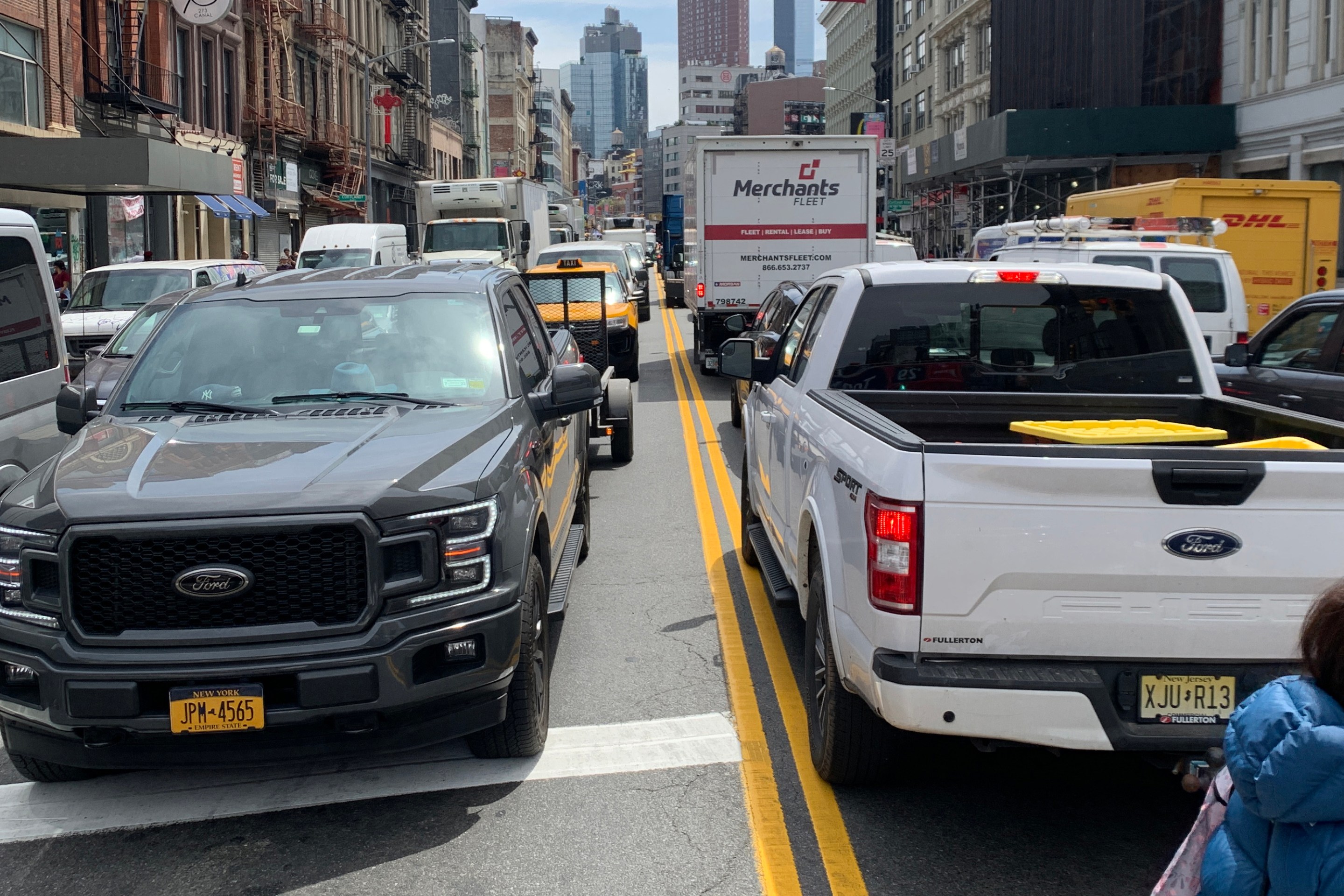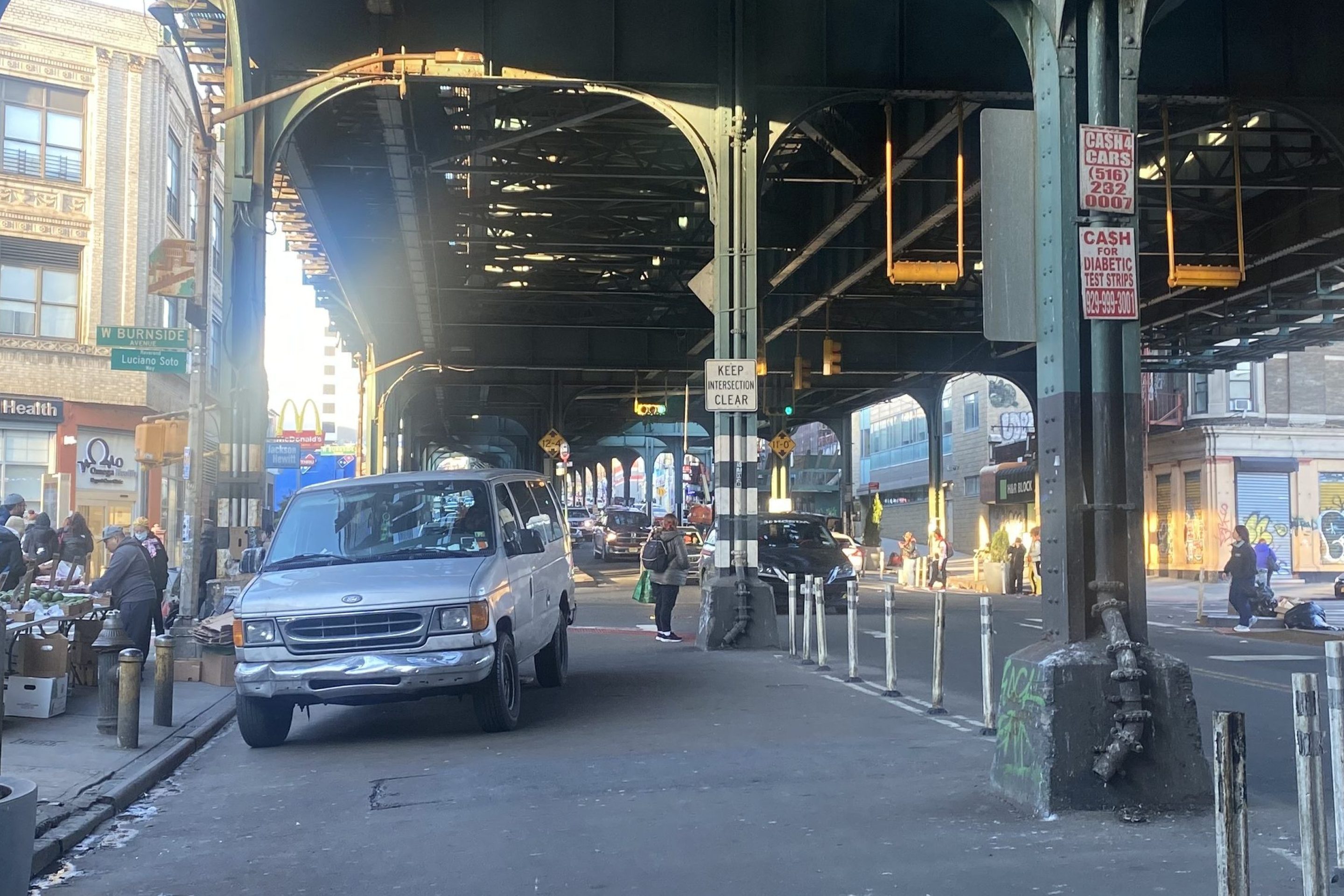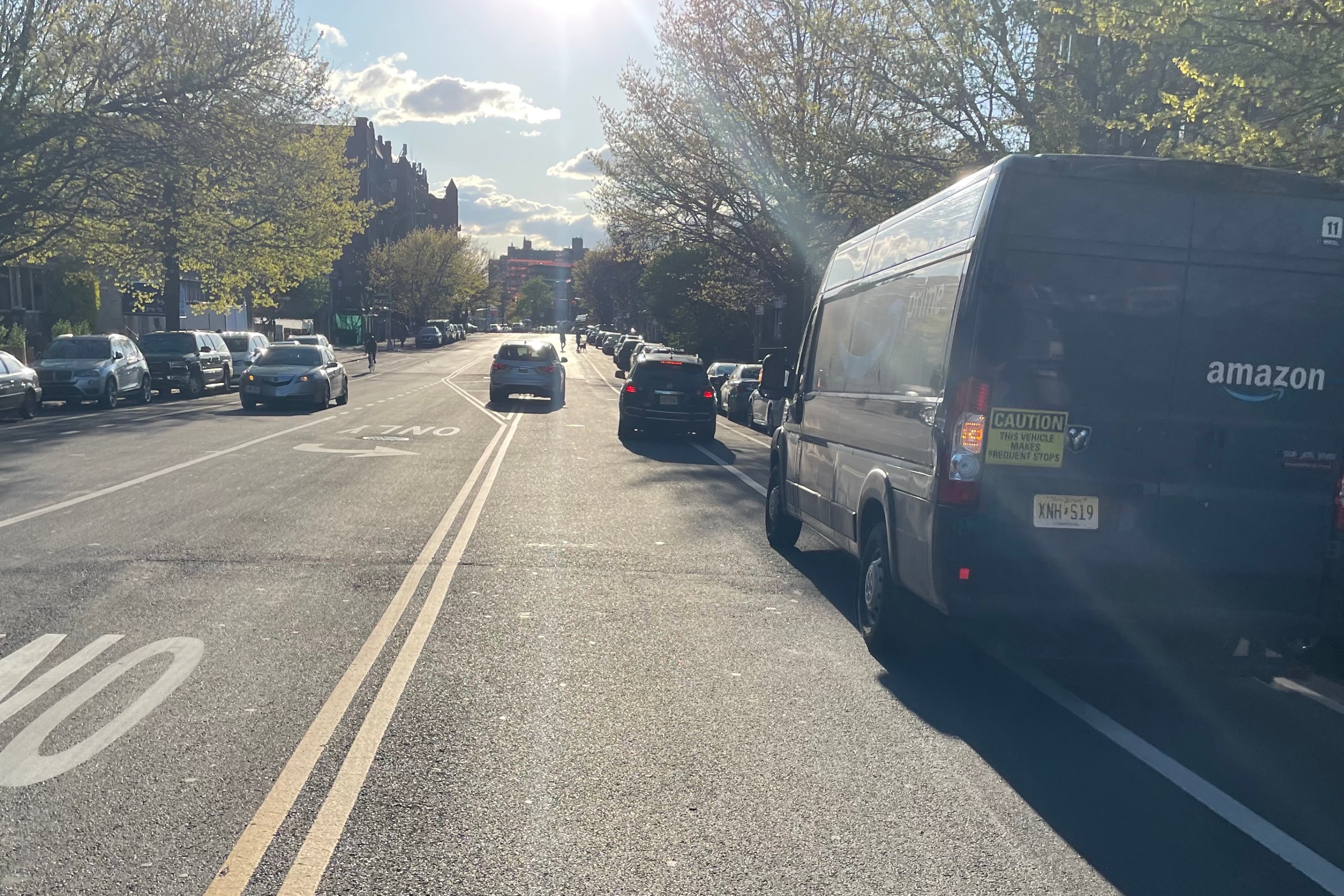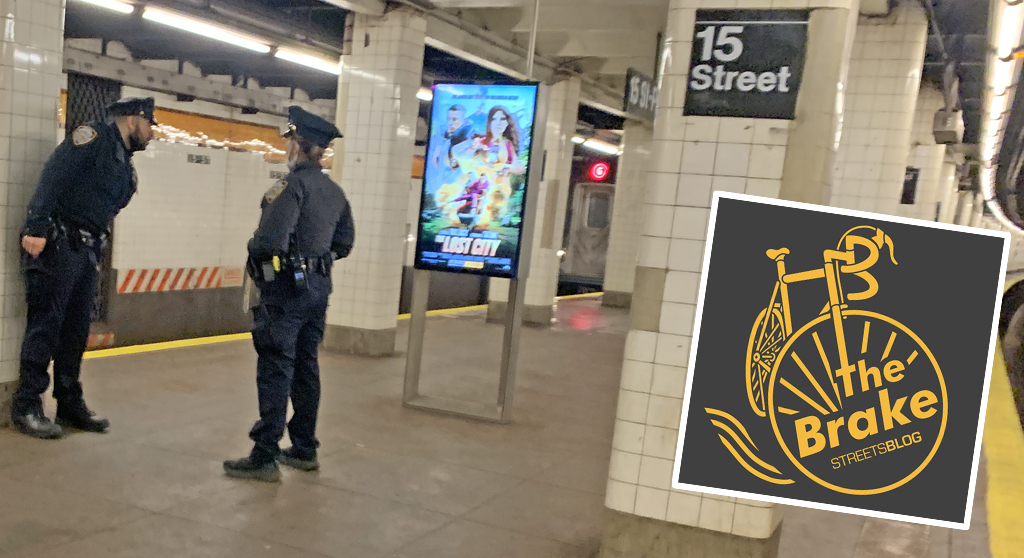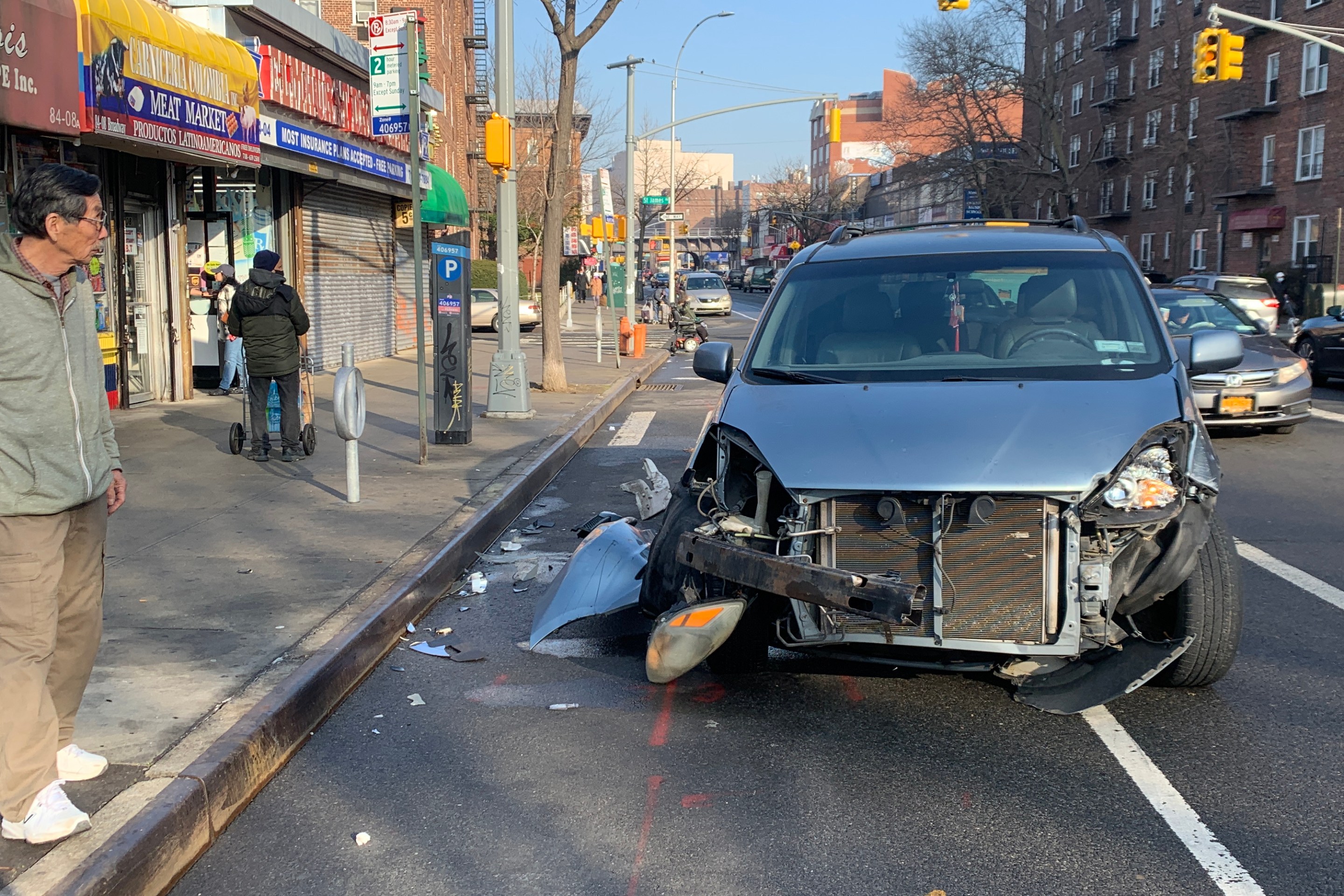Yesterday on the Streetsblog Network, member blog Portlandize published a great post summarizing the economic benefits of better cycling infrastructure. The piece serves as a response to those who might have their doubts about Portland's ambitious new Bicycle Plan for 2030.
Just passed unanimously by the City Council, the plan will spend $600 million over 20 years to build more than 700 miles of new bikeways, with the goal of increasing the share of bicycling trips to 25 percent of total trips by 2030. Mayor Sam Adams is currently working on a plan to raise $20 million to kick start the initiative.
It's a huge step for a U.S. city. Portlandize's Dave Feucht explains why he thinks it will be money well spent, an investment that will provide a multifaceted and direct economic return to Portland's citizens:
What many cities in Europe have found out, is that pedestrians and
cyclists are better shoppers than those who arrive in automobiles. They
are more able to stop on a whim, browse casually…. Many major shopping districts in European cities are
car-free, and they thrive.
Active citizens are healthier citizens, and more productive citizens,
and the city, as well as companies, pay money to support health care
costs for the citizens of a city. An active lifestyle is one of the
best preventative medicines, and countries in Europe have done studies
that show the monetary benefits of having their workforce healthy and
productive due to being regularly active are massive.
Traffic. We spend hours and hours sitting in our cars, wasting fuel,
wasting time, polluting the air. Our streets simply cannot handle the
volume of traffic we currently have, and we are expecting growth. Not
only can we not afford to tear up our neighborhoods to build bigger
roads (from a community point of view), we can much more easily afford
to add bicycle infrastructure to our existing roads than build more
roads. Portland's entire 300 mile network of bikeways cost about the
same as 1 mile of urban freeway. Granted, some of the stuff in the
Portland Bicycle Plan is more expensive that what we have done so far,
but it is still minuscule compared to the cost of building and
maintaining automobile-only roads.
There is no shortage of news and information on this, and I'm sure a Google search will provide many more specifics, studies and discussions
on the topic. Here is a study from the European Cycling Federation to
start (http://www.ecf.com/3379_1)….
Obviously, people are still going to drive. I'm still going to drive,
sometimes. However, currently 80 percent of trips in the U.S. are by
single-occupancy automobile, and about 40 percent of all trips are two miles or
under. The more people we can encourage to not drive when they don't
really need to, the better, in so many ways. Not just better for the
"cyclists", but better for the city, better for the citizens, better
for the businesses, better for the people who improve their health and
save themselves money.
More from around the network: Sprawled Out on how suburbs encourage sloth. The Naked City on the perils of walking in downtown Charlotte, North Carolina. And Dallas Transportation asks readers if they detect an "infrastructure crisis" in their lives.

